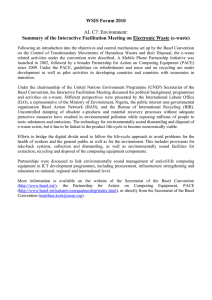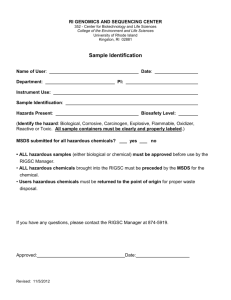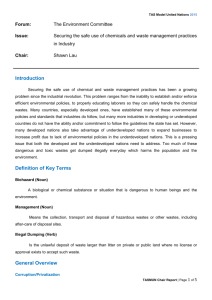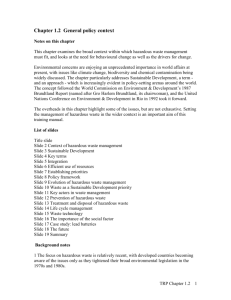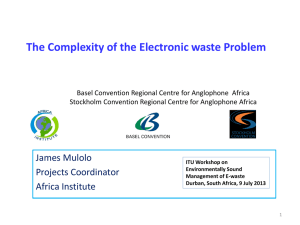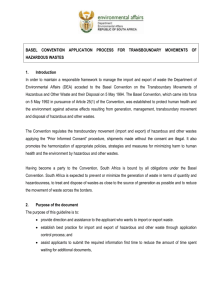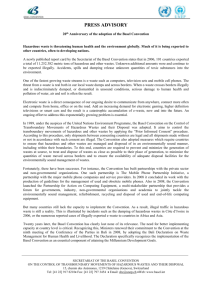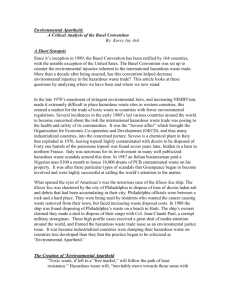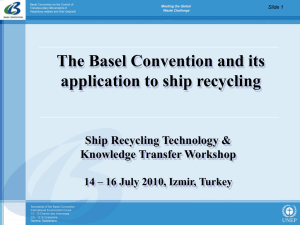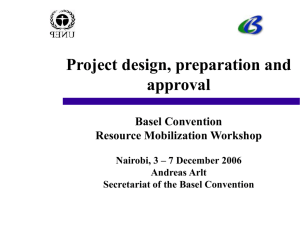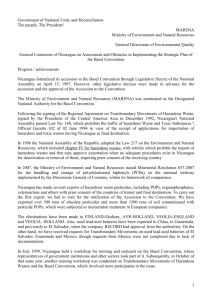Press Advisory - Basel Convention
advertisement
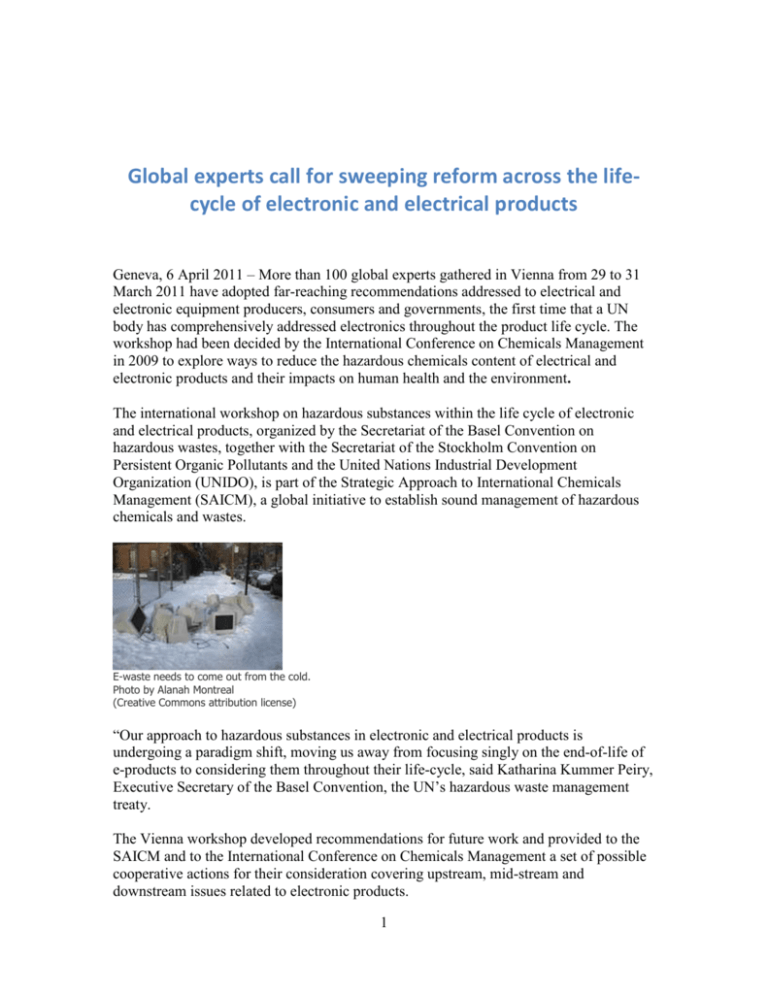
Global experts call for sweeping reform across the lifecycle of electronic and electrical products Geneva, 6 April 2011 – More than 100 global experts gathered in Vienna from 29 to 31 March 2011 have adopted far-reaching recommendations addressed to electrical and electronic equipment producers, consumers and governments, the first time that a UN body has comprehensively addressed electronics throughout the product life cycle. The workshop had been decided by the International Conference on Chemicals Management in 2009 to explore ways to reduce the hazardous chemicals content of electrical and electronic products and their impacts on human health and the environment. The international workshop on hazardous substances within the life cycle of electronic and electrical products, organized by the Secretariat of the Basel Convention on hazardous wastes, together with the Secretariat of the Stockholm Convention on Persistent Organic Pollutants and the United Nations Industrial Development Organization (UNIDO), is part of the Strategic Approach to International Chemicals Management (SAICM), a global initiative to establish sound management of hazardous chemicals and wastes. E-waste needs to come out from the cold. Photo by Alanah Montreal (Creative Commons attribution license) “Our approach to hazardous substances in electronic and electrical products is undergoing a paradigm shift, moving us away from focusing singly on the end-of-life of e-products to considering them throughout their life-cycle, said Katharina Kummer Peiry, Executive Secretary of the Basel Convention, the UN’s hazardous waste management treaty. The Vienna workshop developed recommendations for future work and provided to the SAICM and to the International Conference on Chemicals Management a set of possible cooperative actions for their consideration covering upstream, mid-stream and downstream issues related to electronic products. 1 “To prevent harm to human health and the environment from hazardous substances in the life-cycle of electrical and electronic products, it is essential that we adopt upstream solutions which can positively impact other parts of the life-cycle,” said Ted Smith, coordinator of the International Campaign for Responsible Technology (ICRT), an advocacy group participating in the workshop. He added, “This is the first time that the full life cycle of the electronics industry has been the focus of a policy meeting at the global/UN level.” The workshop called for an increased pace to implement green design and the phase-out of hazardous substances contained in electrical and electronic products, which disproportionately impact the developing countries. “There is an urgent need to reverse the disproportionate burden faced by developing countries during the more damaging phases of the life-cycle of electrical and electronic products, including manufacture, trade, waste handling and management,” said Ibrahim Shafii, Programme Support Chief with the Basel Convention Secretariat. Added Ms. Kummer Peiry, “E-wastes present a heavy burden for people, especially the poor, and the environment while offering opportunities as potential resources to be recycled, recovered, or re-used. Economic opportunities to create green jobs and manufacture electronic and electrical products with less hazardous substances exist and should be energetically promoted.” A key outcome of the meeting was the call for linking growth in the electronics sector to progressive improvements in equity and well-being. Among the recommendations agreed at the workshop, the participants endorsed the principle that, “The expected growth in the electrical and electronic sector and the need for its long-term sustainability will require making parallel and proportional improvements in environmental, health and safety, and social justice attributes.” The International Conference on Chemicals Management will consider the Vienna recommendations at its third meeting scheduled to be held in 2012. The tenth meeting of the Basel Convention Conference of Parties, scheduled to be held in Cartagena, Colombia in October 2011, has selected as its theme the prevention, minimization and recovery of waste. “The Cartagena Conference is expected to make a contribution to this important paradigm shift where efforts have to be made to transform waste into resources. The outcome of this workshop might provide useful input to the Conference of Parties to the Basel Convention,” predicted Ms. Kummer Peiry. 2 Additional In advance of the workshop, the Basel Convention Secretariat had released Shifting paradigms: from waste to resources on the Convention’s role in strengthening the waste to resource linkage. The document includes over-arching policy level recommendations, as well as practical recommendations using the framework and mechanisms of the Basel Convention, for consideration by parties at its tenth meeting (Basel COP-10). Basel COP-10 is scheduled to convene in October 2011 in Cartagena, Colombia, under the theme of “Prevention, minimization and recovery of wastes.” For more information, visit www.basel.int. Contact Ibrahim Shafii, Chief, Programme Support Unit of the Secretariat of the Basel Convention, tel. +41 22 917 8636, Ibrahim.shafii@unep.org Michael Stanley-Jones, Public Information Officer, Joint Convention Services, UNEP, Geneva, tel. +41 79 730 4495, SafePlanet@unep.org 3
